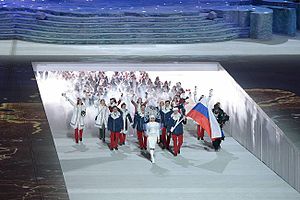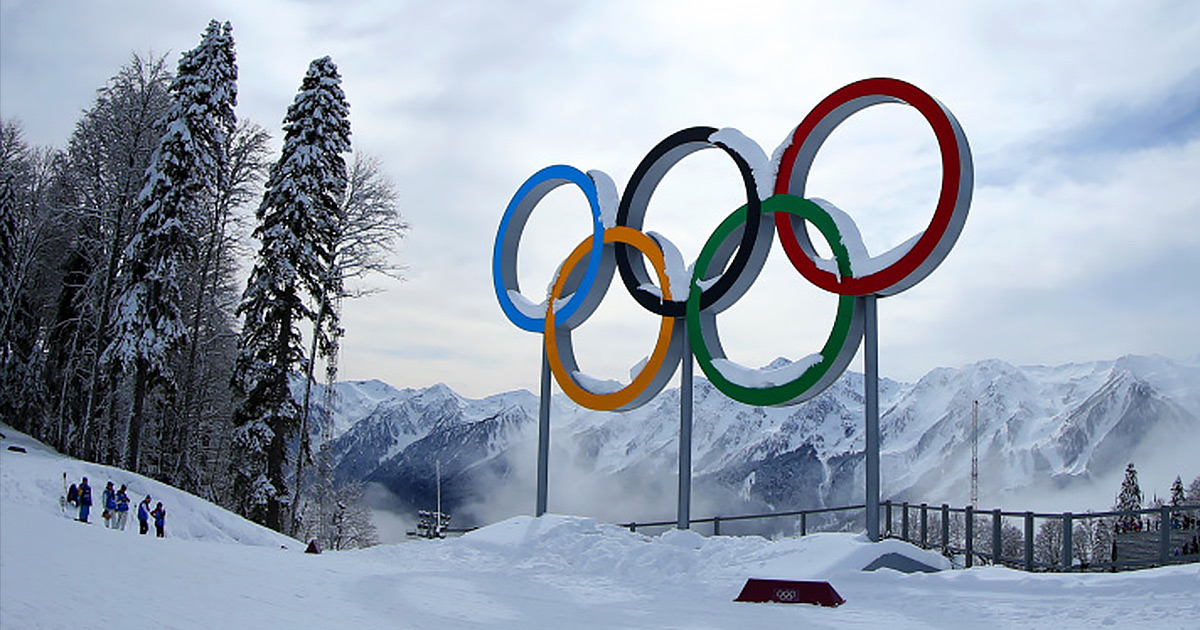International Olympic Committee Bans Russia from 2018 Winter Olympics
December 21, 2017
Just days ago, the International Olympic Committee (IOC) banned Russia from the 2017 Winter Olympics to be held in Pyeongchang, South Korea. Yes, that’s right; one of the strongest Olympic teams in the world will not be competing in this worldwide event. But why?
For those who may not remember Russia’s involvement in the 2014 Sochi Winter Olympics, many of the Russian competitors were found to be a part of a state-wide doping program. The communist country

had been working on this program for years in order to ensure their strength at the Games. And had this scandal not been discovered, it would have been quite successful: at least 15 of Russia’s medalists that year were found to have been a part of the doping program. The scheme was uncovered through the shocking revelations from several Russians involved, such as Grigory Rodchenkov, the director of the program and the man in charge of the doping lab. He described in detail (two years later, in 2016) the mixture of illegal substances with alcohol in his lab that was given to the athletes.
However, the scheming did not end there, for the doping of the athletes was just one part of the country’s master plan to succeed at the Sochi Olympics. The Russian “whistleblower” further explained the illegal tactics used in order for the athletes to pass their drug tests. Using urine they had collected earlier, the Russian wrongdoers had snuck into the testing laboratory to substitute the clean urine samples for the dope-filled ones.
Rodchenkov had said that as many as 100 samples were replaced. And it showed.
The Russians completely transcended the United States in the competition. Not to mention that the country had won the most medals of the games, making a grand total of 33 medals. Not one of the athletes were caught, though Rodchenkov eventually released a spreadsheet of the people involved. Among the many names on the sheet were Alexander Zubkov, the bobsledder who won two golds, and Alexander Legkov, the cross-country skier who won gold and silver.
Fast-forward to December 2017. After a year of investigating the suspicious Russian activities, the IOC had finally confirmed the illegal actions that took place in Sochi. However, the IOC’s sternness towards the exposed country was not as severe as some may think.
Some Russian athletes will still be able to compete in the upcoming games, even those who have had a history of performance-enhancing drug use. A mere petition and a panel vote are the athletes’ only obstacles that they must face. However, the harshness of the punishment is this: Russian athletes must be in neutral uniforms and will be referred to as “Olympic Athletes from Russia.” This distinguishes the Russian competitors as individuals competing for themselves rather than teammates competing for their country. Thus, even if Russians win medals, the country itself will have a record of zero medals.
The Russian flag will not be displayed, the country’s anthem will not be blared, and officials are banned from attending the events. Additionally, it is predicted that the amount of Russian competitors will be reduced significantly.
What happens next is up to Russia, or, more specifically, Russian president Vladimir Putin. There has not yet been a clear response from Putin about his thoughts on the embarrassing situation.
Aside from possible political repercussions, the new situation has also left many question marks about its impact on the Games themselves. Due to the probable reduced number of Russians to be competing, there are opportunities for other countries to snag the medals held in events previously dominated by Russia. The country’s cross-country skiing, figure skating, and curling metals in particular (won in Sochi) may be at risk of being stolen by other gold-hungry countries.
The Pyeongchang Olympics are certain to be one for the books.
